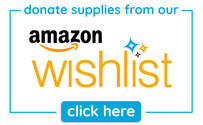FREQUENTLY ASKED QUESTIONS
WHO OWNS CAMP PINEWOOD?
Camp Pinewood is owned and operated by the Idaho Regular Baptist Bible Camp Inc. and is a
501c3 non-profit that is run by the Southern Idaho Regular Baptist churches. We have 10 supporting churches and a board that consists of pastors and laymen from that association of churches. We have been operating in this location since 2000, but our previous location started in 1945.
501c3 non-profit that is run by the Southern Idaho Regular Baptist churches. We have 10 supporting churches and a board that consists of pastors and laymen from that association of churches. We have been operating in this location since 2000, but our previous location started in 1945.
IS THE CAMP OPEN YEAR-ROUND?
Yes! We operate weekend retreats September through May and full-week summer camps June through August. We offer Rental packages to churches and other nonprofits to run your own retreat.
WHAT ARE SOME OF THE ACTIVITIES AT CAMP PINEWOOD THAT DO NOT COST EXTRA?
SUMMER: We have many activities that are included in the camp price. In the summer we offer a playground, large ball field, archery, bouldering, and disc golf. We have short hikes on camp and hikes in the surrounding area. We also have volleyball, Octo-ball, a slip n' slide, and plastic throwing axes with targets.
WINTER: We have a great hill for sledding and we provide the inter tubes. We also have snow shoes for winter hikes and lots of snow for winter activities.
WINTER: We have a great hill for sledding and we provide the inter tubes. We also have snow shoes for winter hikes and lots of snow for winter activities.
WHAT ARE THE ACTIVITIES THAT COST EXTRA?
- Archery tag is a high-energy group game that involves shooting the opposite team with a bow and arrow (that has a large foam tip). Check out this video HERE . Great for kids and adults alike, it is available late April through mid October, it costs $5 per person for a session (usually a little more than an hour) Group rates available as well. We provide all the equipment.
HOW CLOSE ARE YOU TO TOWN?
Camp Pinewood is only a few blocks away from beautiful Payette lake. There are several public beaches that are within walking distance. Down town McCall, with shopping, ice cream and restaurants is also within walking or bicycling distance. We are 4 blocks from St. Luke's hospital as well.
HOW BIG IS CAMP PINEWOOD?
Camp Pinewood has approximately 48 mostly wooded acres, has about 150 beds, and can feed about 150 people (numbers in the winter are a little less)
CAN I BRING MY PET TO CAMP?
Service animals are allowed, but we need to know ahead of time to place you in the correct housing for you and your helper. We love our pets too, but we cannot have pets staying in the cabins or lodges. (Some exceptions if you are bringing your own RV) contact us
DO YOU ACCOMMODATE FOR SPECIAL DIETS?
Absolutely! We are happy to accommodate allergies. Our new registration software has a place to list special diets and allergies. If we know ahead of time, we can provide gluten-free, dairy-free, vegetarian, vegan, and a few other common allergies. If your diet is especially severe or complicated, we can discuss with you what we can or cannot provide. If we are unable to meet your dietary needs, you may arrange to bring your own food and store it in a refrigerator near our dining room, and use our microwave near the serving line. (or the Retreat Center kitchen if you happen to be staying in that building)
WHY DO YOU CHARGE EXTRA PROCESSING FEES TO SIGN UP ON LINE?
All credit card processing companies charge fees, you may not see them in transactions you are familiar with, but they are there. We choose to show those fees and add them onto the end, this allows us to get 100% of the cost for camp, If you want to avoid the fees, You can send it in with a check or money order and ask us for the "no payment at this time" registration link.
WHAT ARE YOUR HEALTH AND SAFETY PROCEDURES?
Encourage good hygiene practices
Frequent hand washing for at least 20 seconds
Use of hand sanitizer
Cover cough or sneeze
Illness Policies
Parents should evaluate the health of their child before sending them to camp. If a child
displays symptoms of illness (fever or vomiting) they should not attend camp. If that happens, we will refund the registration fee.
If a child becomes ill while at camp, that child will be isolated and their parents will be
notified to come and get them. It is the parents’ responsibility to transport their child
home. Our staff will work with you on a partial to full refund, depending on how much camp your child misses.
Food Service
Following state food service establishment regulations.
Cafeteria-style serving
Increased sanitation procedures
Hand sanitizer in dining area
Sanitizing surfaces between meals


